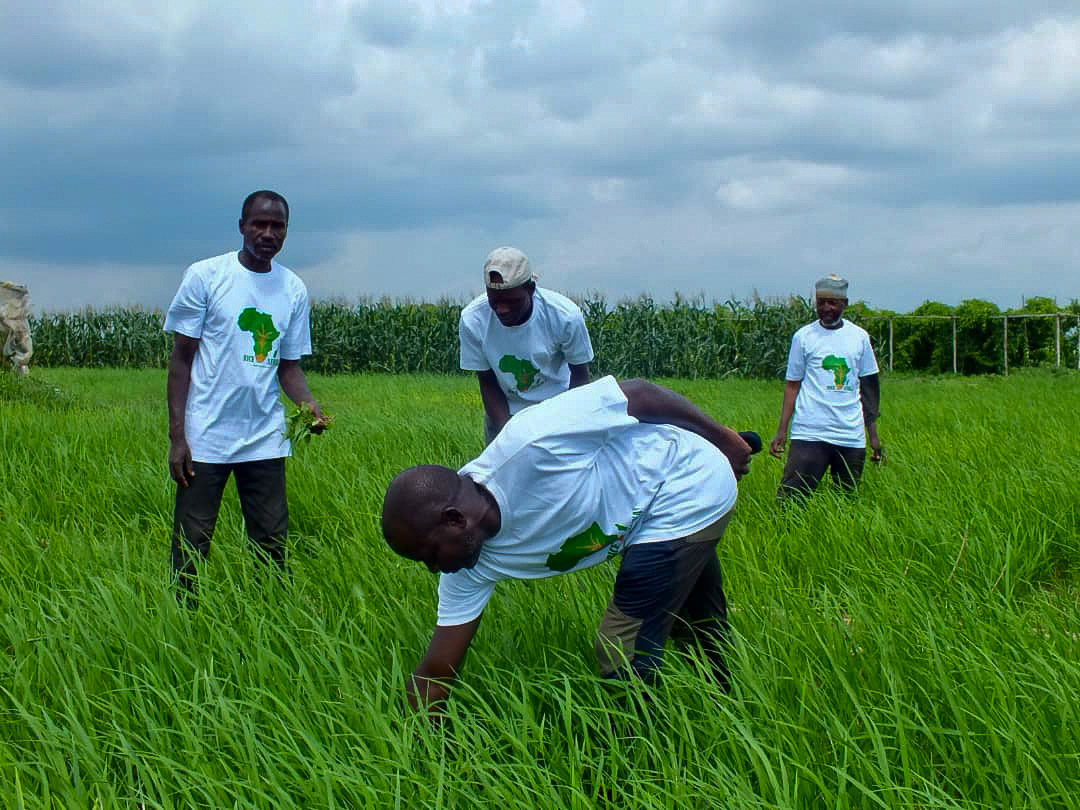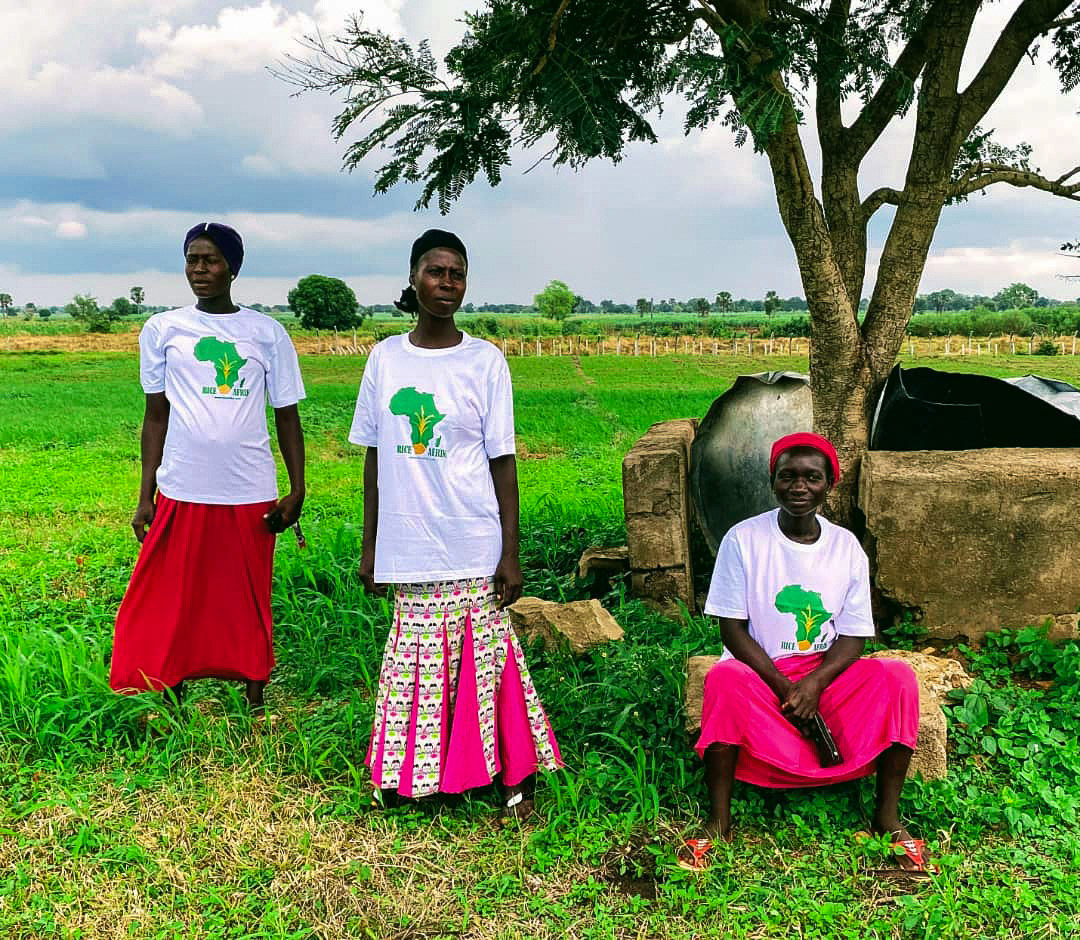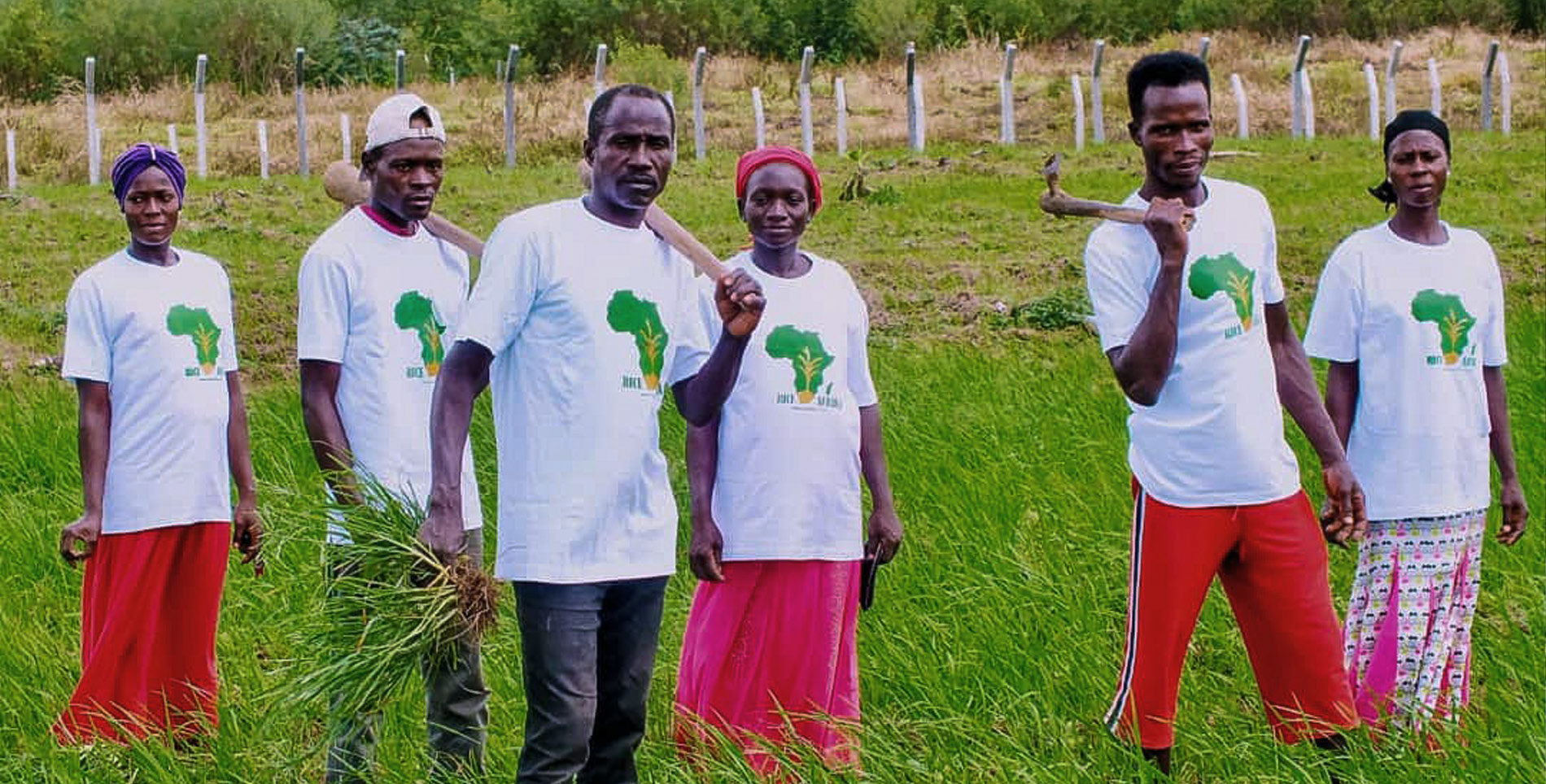Every Nigerian household—especially the middle and lower classes—knows firsthand the significance of rice as a nationwide diet. According to a 1991 World Bank report, at least a third of the poorest of urban households in Nigeria get 33% of their cereal-based calories from rice.
Rice is the country’s staple meal for events and celebrations, ranging from weddings to funerals to holidays. However, for a period of time since the introduction of this staple into the Nigerian food basket, rice was perceived as a luxury item, readily available only to the rich and upper-middle class households. For the lower-middle class and poor households, meals like corn and cassava were staples, while rice was reserved as the meal of only very important celebrations, like Christmas.
“As a child, I always looked forward to the Christmas and New Year’s celebrations, because those were the only times we got to eat rice in my home,” Mrs. Kunle, a 50-year-old civil servant, says. “In those days, rice sold for as much as one naira per bucket (about 10,000 naira now) and was as prized as gold,” she muses. “It made me acquire a taste for rice that I carried into adulthood. And thank goodness rice is not the luxury item it used to be.”
But government food policies implemented since 2015 are seeing rice revert to a time when it was a meal unaffordable to poverty-stricken Nigerians.
Government Policy and Local Production
In 2015, the federal government of Nigeria banned the use of foreign exchange to import food items, including rice—a policy economists agreed was a recipe for disaster.
The policy was implemented suddenly, without giving sellers or consumers enough time to find ways to cushion the effects of the ban, which led to importers smuggling rice into the nation at higher prices. The direct implication was foreign rice being sold at higher prices in a bid to make up for the amount spent smuggling the staple into the nation.
In 2019, when the government of Nigeria further restricted the importation of rice to the country, closing out its land borders to stop the smuggling of foreign rice, local farmers initially applauded the policy.
“Finally, we can start to produce the food that we need,” says Musa Maikudi, a rice farmer from Nasarawa State in North Central Nigeria. “Nigeria has relied for too long on oil exportation. This ban means that the government would fund local farmers and provide loans to boost production.” Maikudi, and many other farmers, were excited at the prospect of large-scale farming; they held high hopes the government would fund, or at least make soft loans available to the farmers. This did not happen.
Three years later, Maikudi’s tone drastically changed. “There is neither the machinery nor manpower for the level of production needed to meet the demand for rice,” he laments. And although he has increased production by about 10%, the retail price of locally-produced rice is still significantly lower compared to imported rice smuggled through Nigeria’s porous borders with Benin Republic.
“The price difference between our locally-produced rice and foreign rice, which is imported, is about 500 naira (about $1.20), and local farmers without the capacity to produce rice almost as fine in quality as the imported foreign rice are running at a loss,” says Maikudi.
According to Gad Ganshe Garjila, a local rice farmer in Wukari, Taraba State, North Eastern Nigeria, the ban would have been a step in the right direction by the Nigerian government as it would reduce reliance on imported rice and also encourage Nigerian consumers to get used to local rice, which he insists is more nutritious than imported rice. This, he says, is because foreign rice is parboiled and preserved and goes through a series of artificial manufacturing processes.
Garjila further stated the ban should have been followed by government support. But this support continues to be nonexistent as rice farmers are mostly left to their own devices, and most of the rural-based farmers have only heard tales of various government loan schemes.
“A lot of my co-farmers find it difficult to access fertilizers and pesticides,” he says. “Some of them had to borrow money from microfinance banks and money lenders to cultivate their farms, to pay back after harvest. However, the interest rate on these loans covers profit made after sale.”
According to Garjila, “Milling machines used for dehusking rice are local milling machines which have been in use for years, unable to mill the rice to a perfect quality. This is the reason why locally-produced rice has stones, dirt and chaff, making the cooking process more tedious, thereby encouraging consumers to purchase foreign rice, which has been milled to perfection.”
The Use of Agritech in Boosting Local Production
It is to produce a solution to these problems that RiceAfrika, a technology-based platform aimed at connecting all stakeholders in the rice value chain, was created.
According to Ibrahim Maigari, Lagos-based technology entrepreneur and CEO of RiceAfrika, technology, an enabler when applied in production, will not only boost, but simplify how rice is farmed, harvested, milled and distributed in Nigeria.

The platform collects data that matches landowners with farmers, farmers with millers and consumers. millers with packaging, truck owners with cargos, thereby creating a seamless intersection between each unit in the value chain system.
RiceAfrika, by introducing technology into the rice farming ecosystem and partnering with foreign investors, enhances high-yield production. According to Maigari, over 90% of rice farmers do not have access to mechanized farming and milling of rice, leading to a low-quality and low-yield harvest.
“In between insecurity, production costs, funding and competition with illegally imported foreign rice, rice farmers in Nigeria are having a hard time reaping the rewards of all their hard work,” Maigari says.
It is in a bid to bridge this gap and better appreciate the problems facing local rice farmers that RiceAfrika entered into the production of premium quality, 100% stone-free, long-grained rice.
However, this has exposed the platform to an almost greater problem to the rice ecosystem in Nigeria: middlemen and consumerism culture.
“Because Nigerians are of the opinion that foreign rice is better—which is untrue, because foreign rice has a high percentage of chemical preservatives—middlemen are tapping into their desire for ‘better’ to exploit both consumers and local producers,” says Maigari, who explains that middlemen distributors produce foreign rice branded bags and purchase high-quality, finely-milled local rice, and re-bag them, passing this re-bagged rice off as foreign rice sold at a higher price.
This, he says, RiceAfrika has tried to curb by creating a mobile app—the first of its kind in Nigeria—which has a rice identification system used for identifying original RiceAfrika produced rice.

The Middle Class Dilemma
In Nigeria, the minimum wage is fixed at 30,000 naira (about $72) while a 50-kilogram bag of rice costs between 25 to 30,000 naira. As the purchasing power of the naira continues to drop and as economic food policies such as the ban on rice importation continue to plague the middle and lower classes, more Nigerians are shifting to other sources of carbohydrates, such as wheat. Yet, in what can only be described as an ironic twist, in April 2021, the Central Bank of Nigeria announced that sugar and wheat have been added to the Nigerian foreign exchange restriction list, created to encourage local production of items such as rice, maize, tomatoes and tomato paste. The cost of a bushel of wheat promptly skyrocketed from 300 naira ($0.73) to 700 naira ($1.70), throwing the lower and middle classes into another unplanned, but rapid, economic downturn.
“Sugar and wheat are used in the production of so many staple foods like noodles, bread, pasta, cake, seasoning, etcetera,” says Nurudeen Aliyu, an economist. “The implication of this ban is that importers of these items have to source for FX [foreign exchange] through the black market at a price higher than the official Central Bank rate.”
Aliyu further adds that the extra cost incurred is transferred to the cost of production, thereby creating a steady increase in the price of these items.
“In Ramadan 2020, I was unable to give rice as zakat after the fast because of how expensive it had become, so I gave wheat instead,” Abdullahi Yusuf, a middle-class Muslim civil servant explains. “This year, I couldn’t give zakat because of how expensive wheat had become as well. I have five kids and I am required to give a bushel of grain on behalf of each of them, and my two wives. The cost of this is about three times what it cost last year and about six times what it cost two years ago,” Yusuf laments.
Mallama Dodo, a visually-impaired homeless woman in Mararaba, Nasarawa State, who relies on zakat given by Muslims like Yusuf in fulfillment of religious obligations for survival, says there was a significant change in the type and number of zakat she received this year. “Muslims bring zakat to the nearby mosque and the imam splits it amongst us beggars. This is how we are able to celebrate Eid. Over the past Eids, zakat is usually given in rice,” she explains. “However, for about two Eids, there has been a slight decrease in rice given as zakat. Wheat was given instead. This year, there was no rice at all, and barely any wheat. We had to make do with millet and corn.”
Dodo says neither she nor her children have eaten rice in months. “A bushel of foreign imported rice is about 1,500 naira ($3.65), while locally-produced rice costs about 700 naira ($1.70),” she says. “I cannot afford either of the two.”
“The Nigerian government’s ban on wheat has a direct effect on the already dwindling bourgeoisie population of the nation. It also heaps more pressure on the lower class who by recent estimates, is more than 40% of the total population of the nation,” says Aliyu.
These policies, which continue to push the middle class into the lower class, and the lower class into poverty, can perhaps be seen as a way of putting the populace in check. A direct impact of this is vote-buying during elections using food—especially grains. In local and state elections, party agents mostly offer items like rice at election rallies, and even at polling units on election day, to bribe electorates into voting for a particular candidate.
Faith*, a resident of a South East part of Nigeria, has had a similar experience during the state’s local elections. “The political parties outdid themselves in giving out bags of rice as payment for votes,” she explains. “All you had to do was show any of their agents your voters’ card, vote for their recommended candidate, and you get 25 kilograms of rice.”
As more and more food policies that affect middle and lower class survival continue to spring up, the Nigerian government’s blatant disregard for this group—which makes up over 50% of the nation’s population—can only be described as oppressive, exclusionary, and incredibly classist.
*Name has been changed to protect the identity of the person interviewed.







Our comments section is for members only.
Join today to gain exclusive access.